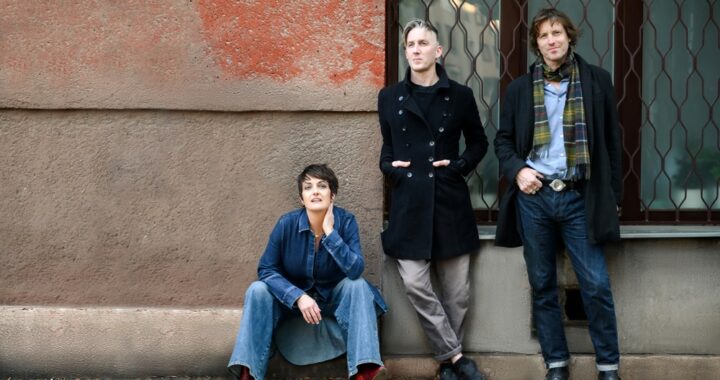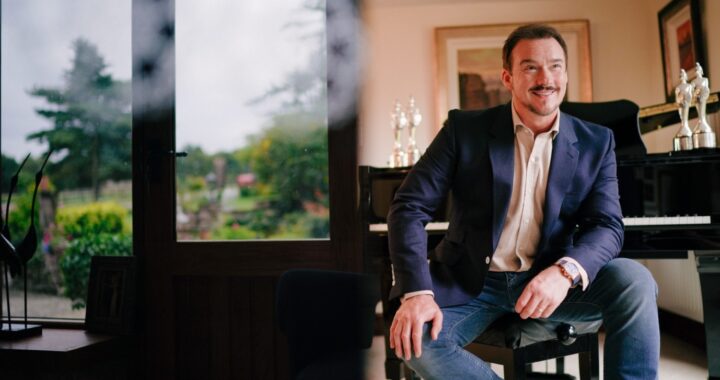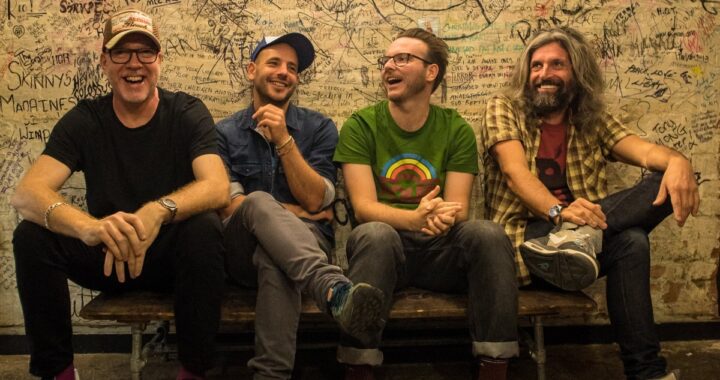Interview: Dan Glenn
6 min read
Following the release of A Portrait of James Dean: Joshua Tree, 1951, we caught up with one of it’s stars, Dan Glenn, who plays James Dean’s lover and roommate. The film beautifully tells the story of Dean’s formative years prior to his international fame; through his influences and relationships. Dan tells us about the beauty and complexity of Deans relationships.
Renowned For Sound: Hi Dan, thanks for taking the time to talk to us. First of all, what attracted you to working on this project?
Dan Glenn: There was so much about this project that was nothing like anything I had read for before, namely the concept of how James Dean had such lasting impact not only on how actors act, but how he affected those close to him. I also liked the non-linear, flashback style the story is told. It makes this film so different, exciting.
RFS: How would you describe A Portrait of James Dean: Joshua Tree, 1951?
DG: I would describe it as a non-linear story told in memories which signify the lasting impact James Dean had on those who knew him.
RFS: How would you describe your character, The Roommate?
DG: My character is someone I think everyone can relate to in one way or another. There’s so much there – a love that can really never be, trying to hold on to someone or something you can’t truly have, watching helplessly as someone close to you attains the same kind of success you want but just aren’t obtaining, and there’s so many feelings that go along with that.
RFS: What influenced you when deciding how to portray The Roommate?
DG: Matthew [Mishory, Director] recommended I read the book Surviving James Dean by Bill Bast and it gave me insight into the effect Dean’s personality and character had on my character. As I was reading the script for the first time, I immediately noticed how my character wasn’t given a name and was only referred to as The Roommate. As an actor, I have sometimes played characters who don’t even have names, like “Cop #2” or “Fireman,” and they’re not exactly the main characters. The writers don’t even bother naming them. It struck me how this major lead character isn’t given an name and I thought, “Maybe this guy isn’t given a name because in the early 1950s he would never be nothing more than ‘The Roommate.’ How degrading is that? He doesn’t even deserve a name.” That’s how I approached playing this character, through the tragic and humbling circumstances of how he will never be what he would like to be, what his feelings for James Dean would like him to be. I think everyone can relate to trying to hold onto something, some idea, or someone that we will never have and I decided to make that the essence of this character.
RFS: What was the nature of your character’s relationship with James Dean?
DG: Complicated at best. Obviously my character wanted to be more than just “The Roommate” in James Dean’s life but I think the fact that in the film his name is only The Roommate says it all: that’s all he could ever really be. This was the early 1950s and James Dean was on his way to be a big star, so whether or not this kind of love my character had for Dean was reciprocal or not didn’t matter. The fact was it could never happen and I think that’s the center of who my character is, how he feels about the world he’s living in.
RFS: It is often noted that James Dean left an indelible impact on the people who knew him, but how do you think your character impacted on James Dean?
DG: James Dean had severe dyslexia and came from a very small farming community in Indiana. Here he was suddenly in Los Angeles and he felt like he had to surround himself with people who, according to the book Surviving James Dean, “knew things he didn’t.” I think that’s one of the reasons why he initially wanted to be friends with a guy like my character, who had lived in New York and spent his summers living with the Colgate toothpaste family. Dean wanted to learn from people like my character.
RFS: Your character was exploring his sexuality at a time when homosexuality was condemned in the United States, did this have an impact on his relationship with James Dean?
DG: I’m sure it did. My character wanted to be “the roommate” for as long as he could, I’m sure, and for the times he probably would have been happy to be just that. The tragedy is that due to Dean’s untimely death, he couldn’t even be that.
RFS: How do you feel your character felt about/interpreted James Dean’s sexual appetite?
DG: I’m sure it bothered him. I’m sure it also bothered him that there was nothing he could do or say to change it.
RFS: Why do you think James Dean is such a legendary icon in Hollywood?
DG: His fearlessness and willingness to be completely raw and open on screen at a time when people were anything but that. If you see his films and compare his performance with that of his contemporaries, who appear more reserved, more in control, you get a sense of someone who people simply couldn’t help but take note of.
RFS: Why was it important to make this film?
DG: When you think about it, the story this film is about is very universal. The storyline with my character and James Dean is similar to Shakespeare’s Romeo and Juliet being star-crossed lovers, doomed from the start. It’s a story that’s been told time and time again, in film, books, plays, in every medium. It’s about a kind of dual feelings people have when they see a close friend achieve success, like “I’m so happy for her or him, but why not me? Why can’t I be successful too?” The jealousy when that person starts to move on to better things.
RFS: What is the significance of Joshua Tree?
DG: Part of the film is based on real-life events when James Dean and his roommate went to the Joshua Tree desert together. They were accompanied by a female “chaperone” appointed by the studios so no one would take notice in two guys vacationing together. I think that in itself speaks volumes of the craziness of this era.
RFS: What would you like the audience to take away from this film?
DG: The complete picture of the times in which James Dean lived. The times made who he – and everyone else in the film – was.
RFS: Is there anything else you would like to add?
DG: I’d like to give a public thank you to Randall Walk and Matthew Mishory for giving me the chance to bring this character to life. It’s been an amazing experience to travel to different cities and different countries and see the impact this film has had on audiences. People always come up to me afterwards and said to me, “You were the one I related to in this film.” That’s a good feeling and I’m grateful to Randall and Matthew for this opportunity.
Click here to read our review of A Portrait of James Dean – Joshua Tree, 1951
Click here to read our interview with Director Matthew Mishory.
Click here to buy A Portrait of James Dean – Joshua Tree, 1951 from Amazon.



